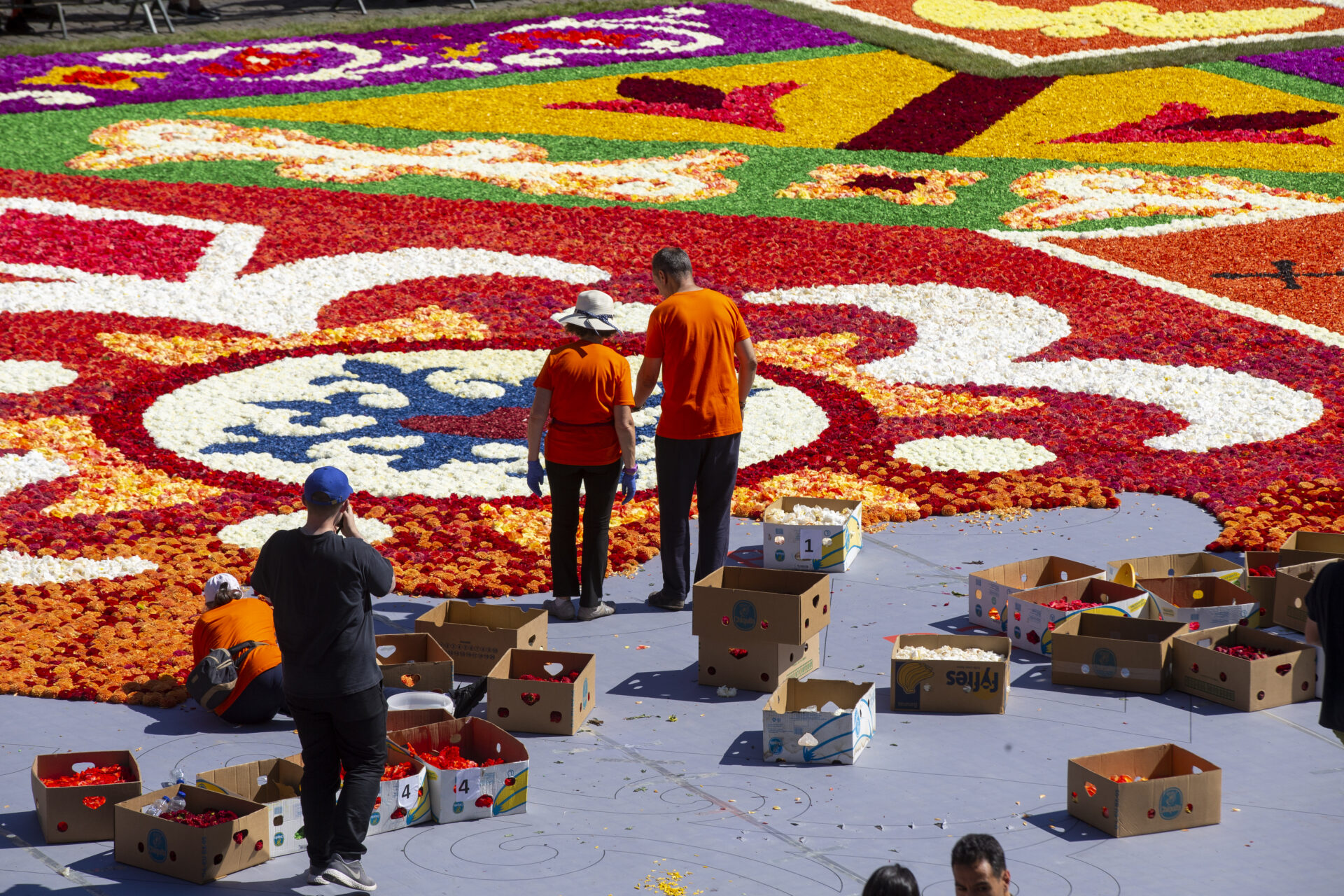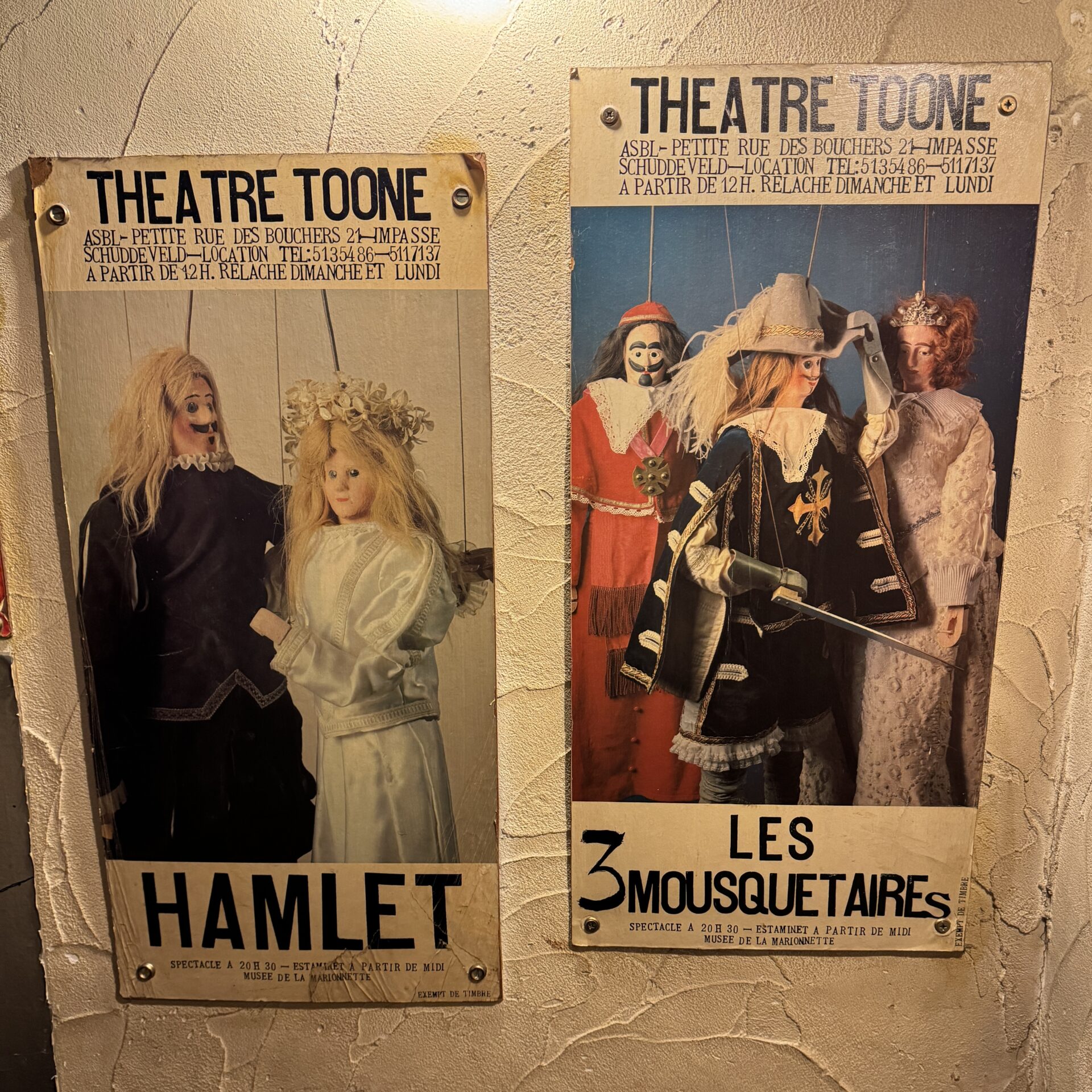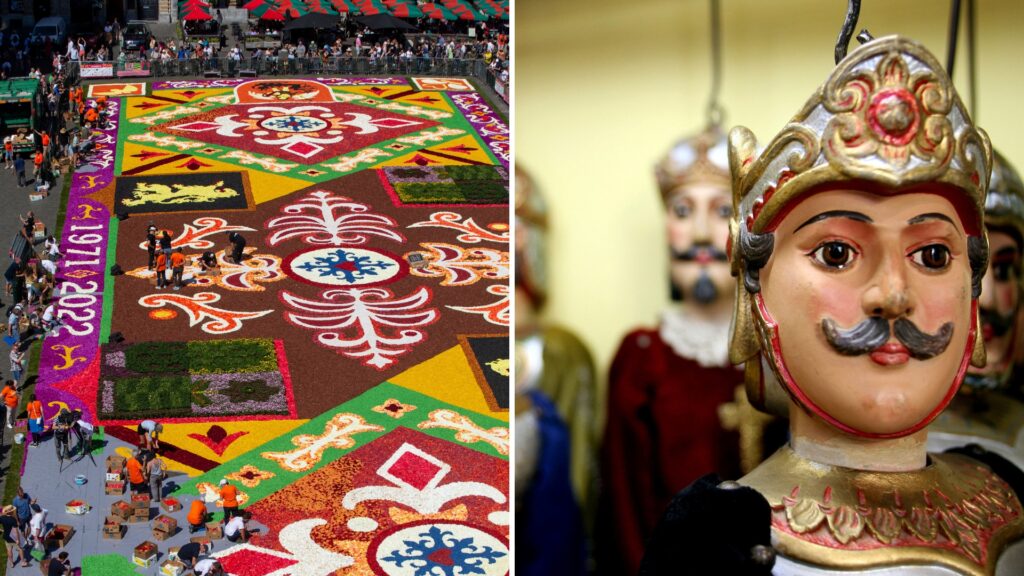Brussels is a capital with many traditions. The Regional Government has now decided to apply for UNESCO Intangible Heritage recognition of two of the city's most renowned gems.
The Brussels Government is looking to protect the traditions of the rod puppet theatre and the biennial Brussels flower carpet by obtaining UNESCO Intangible Heritage recognition, Ans Persoons, Brussels Secretary of State for Town Planning and Heritage, confirmed on Friday.
"Brussels is world-famous for its Art Nouveau treasures, but it also has a great deal of intangible heritage," Persoons said. "From the marionette performances with rod puppets to the impressive flower carpet on the Grand Place, millions of people from all over the world come to Brussels today to discover these traditions."
The urban.brussels administration prepared the candidatures of the two staples of Brussels' heritage to preserve, promote and pass on these traditions. These will be submitted to UNESCO by the end of March.
The Royal Theatre Toone where the rod puppet shows are performed and the flower carpet have both been included on the Brussels Inventory of Intangible Heritage since 2018 and 2020, respectively – regional recognition that is a necessary step for the submission of a candidature.
Blooming historic centre
Every two years, the cobblestones of the iconic Grand Place in the historic city centre are covered by a carpet of blooming and brightly-coloured flowers during the summer. After a break in 2023, the world-famous flower carpet, which measures 70 x 24 metres and is created in less than eight hours, will return this year from 15 to 18 August.
The inspiration for the event originally came from Oudenaarde in East Flanders, where two Brussels councillors came across a carpet created from thousands of flowers and decided that the city should have its own version. In 1971, the Grand Place welcomed its first installation, 'Arabesques'.

The finishing touches are put to the 50th edition of the flower carpet in 2022. Credit: Belga / Nicolas Maeterlinck
However, the tradition originated in the 14th century, in countries around the Mediterranean, such as Spain, Malta and Italy. This is why the dossier was started almost ten years ago by a Spanish association in close collaboration with the Brussels association 'Tapis de fleurs'. It was taken over by the Spanish Ministry of Culture in 2022.
The application runs alongside the international dossier for floral carpets in which Belgium is collaborating with Spain, Italy, Malta and Mexico.
Four centuries of folk tradition
The second dossier in the city's application focuses on the puppet theatre tradition, and was launched three years ago to highlight Brussels' identity, regional languages, inclusiveness and non-commercialism.
This ancient folk theatre tradition grew out of travelling carnival theatres that have toured Europe since the Renaissance. The art form, which at the beginning of the 19th century was a source of entertainment for adults from modest backgrounds, was known for its highly varied repertoire drawn from folk legends, chivalric tales, operas or even religious or historical works.
The special feature of this tradition is the metal rod that runs through the puppet's head and forms two hooks at the ends. With this rod, a well-trained team of six puppeteers, hidden behind a raised screen, makes the puppets move. This requires considerable physical effort to lend rhythm and precision to the movements.

Credit: Cabinet Ans Persoons
The Royal Theatre Toone, where the two UNESCO dossiers were presented on Friday, is the only traditional Brussels theatre still actively performing such theatre pieces. The theatre is preserving the tradition – which was threatened with extinction in the 1960s – by organising four performances a week.
"The rod puppet in Brussels represents four centuries of folk tradition. It is an art that promotes fundamental values such as education for all, freedom of expression, social cohesion and links between generations," said Nicolas Géal, known as Toone VIII, Director of the Royal Theatre Toone.
Related News
- Highlighting heritage: Major works start on Place Royale in Brussels
- Brussels to add 'Au Laboureur' to list of protected cafés
- 'Canon of Flanders' to be published in English
UNESCO gives recognition of intangible cultural heritage, also called living cultural heritage, to "practices, expressions, knowledge and skills that communities, groups and sometimes individuals recognise as part of their cultural heritage."
These are usually expressed as oral traditions; performing arts; social practices, rituals and festive events; knowledge and practices concerning nature and the universe; and traditional craftsmanship. The recognition provides a framework to ensure the future of this heritage.

